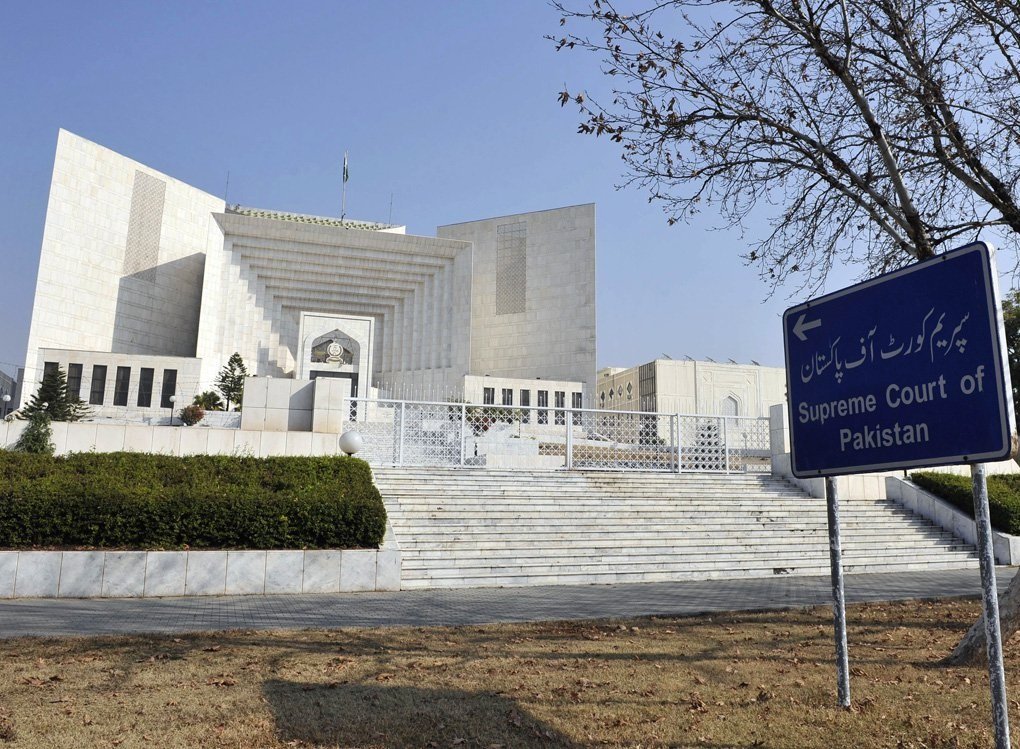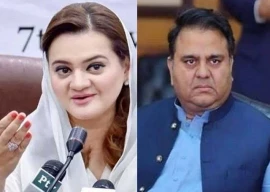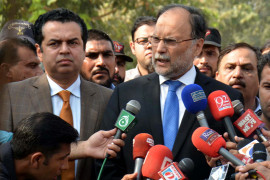
The Supreme Court's much-anticipated decision in the contentious Punjab Chief minister’s polls case — that kept the three-judge bench busy for nearly three days — has supposedly put the lid on the tensions that festered well into Tuesday evening.
But it has also elicited polarised opinions, particularly setting off alarm bells in the legal fraternity over the judicial overreach in the slew of recent orders that are making and breaking parliamentary affairs.
Similarly, the ruling has also earned a certain degree of criticism amongst some sections of the lawyers’ community for its “harsher tones”, raising eyebrows whether or not the legal merits of the cases were examined properly.
While the legal experts do acknowledge that the short order against the deputy speaker's ruling was correct, they also point out that the language used in the order was noticeably harsher than the one used in the judgment against then National Assembly Speaker Qasim Suri’s April 3 ruling to block a no-confidence motion against Imran Khan.
Also read: President Alvi swears in Pervaiz Elahi as new Punjab CM
Senior lawyer Salman Akram Raja said that both rulings were illegal and rightly held to be so by the SC in its two judgments. Some legal wizards chalk up this alleged “irritation” to the government’s decision to boycott the proceedings which could have grated on the nerves of the judges.
The anger that eventually translated into a blow to the PML-N was more pronounced, goes the claim, when CJP Umar Ata Bandial asked Law Minister Azam Nazeer Tarar whether the latter was aware of the “consequences” of boycotting court proceedings.
The bench in its order said that "the governance of the province of Punjab in accordance with the Constitution has been subverted whereby the fundamental rights of the people have been seriously infringed”.
As a result, it said, the ruling of the deputy speaker has been set aside and declared to be void, without lawful authority and of no legal effect.
These lines, the observers argue, perhaps reflected the brewing anger in the bench in stark contrast to the language uttered in the ruling against Suri. “Even though his act was more glaring wherein constitutional process was halted and assembly was dissolved.”
Meanwhile, a PML-N leader suggested that the government should review the conduct of judges who have authored dozens of orders either in favour of rival parties or against them.
Also read: PML-N denounces top court verdict on Punjab CM poll as 'murder of justice'
He stressed that the time was now ripe to restructure the powers vested in the CJP via legislation as no top judge was willing to compromise on his powers regarding the fixation of cases as well as the composition of benches.
Meanwhile, others believe that the superior judiciary will not easily accept any legislation regarding the regulation of CJP powers.
However, CJP's refusal to form the full court will make the SC more controversial. Senior most judge of the Supreme Court Justice Qazi Faez Isa is already questioning his conduct regarding the appointment of new SC judges, mounting pressures for the CJP from within.
“If the SC wants to end dictatorship within parties then it should also abolish unfettered powers of CJP who is facing allegations of favouritism in the composition of benches,” a lawyer said.
Meanwhile, it was learnt that the government has decided to withdraw the curative review petition against the SC majority order wherein the review petition of Justice Qazi Faez Isa was accepted on April 26, 2021.




1725967717-0/Untitled-design-(3)1725967717-0-165x106.webp)




1730577492-0/Express-Tribune-Web-(26)1730577492-0-270x192.webp)











COMMENTS
Comments are moderated and generally will be posted if they are on-topic and not abusive.
For more information, please see our Comments FAQ